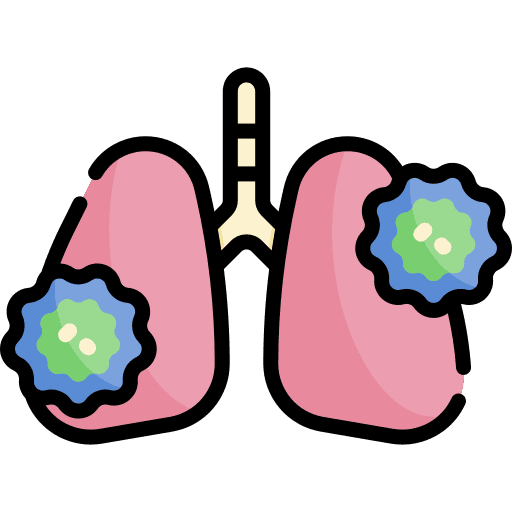What Causes It?
Tobacco smoking - The primary risk factor, responsible for 80-90% of lung cancer cases. Risk increases with the number of cigarettes smoked per day and the number of years of smoking.
Secondhand smoke exposure - Living or working with smokers increases lung cancer risk by 20-30% in non-smokers.
Radon gas - A naturally occurring radioactive gas that can accumulate in homes and buildings, radon is the second leading cause of lung cancer and the primary cause in non-smokers.
Occupational exposures - Carcinogens in the workplace, including asbestos, arsenic, chromium, nickel, and diesel exhaust, can increase risk, particularly in combination with smoking.
Air pollution - Outdoor air pollution, particularly fine particulates, is classified as carcinogenic and linked to increased lung cancer risk.
Previous radiation therapy - Radiation therapy to the chest for other cancers increases lung cancer risk, especially in combination with smoking.
Family history - Having a parent or sibling with lung cancer increases risk, suggesting genetic factors or shared exposures.
Personal history of lung disease - Chronic obstructive pulmonary disease (COPD), pulmonary fibrosis, and tuberculosis are associated with increased lung cancer risk.
Genetic factors - Certain inherited genetic mutations may increase susceptibility, particularly in non-smokers who develop lung cancer.
Age - Lung cancer risk increases with age, with most cases diagnosed in people over 65.
Signs & Symptoms
Persistent cough - A cough that doesn't go away or worsens over time
Coughing up blood (hemoptysis) - Even small amounts of blood in sputum
Shortness of breath - Difficulty breathing, especially with activity
Chest pain - That worsens with deep breathing, coughing, or laughing
Hoarseness - Persistent changes in voice
Unexplained weight loss - Losing weight without trying
Bone pain - Particularly in the back, hips, or ribs if cancer has spread to bones
Headache - Persistent headaches may indicate spread to the brain
Chronic fatigue - Feeling unusually tired or weak
Recurrent respiratory infections - Such as bronchitis or pneumonia
Wheezing - A whistling sound when breathing
Many people with early lung cancer have no symptoms, which is why screening is important for high-risk individuals
